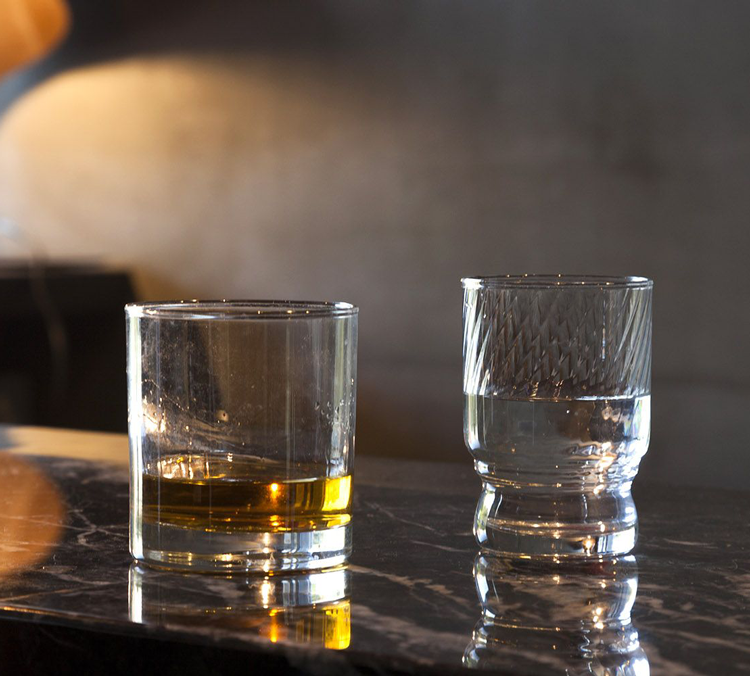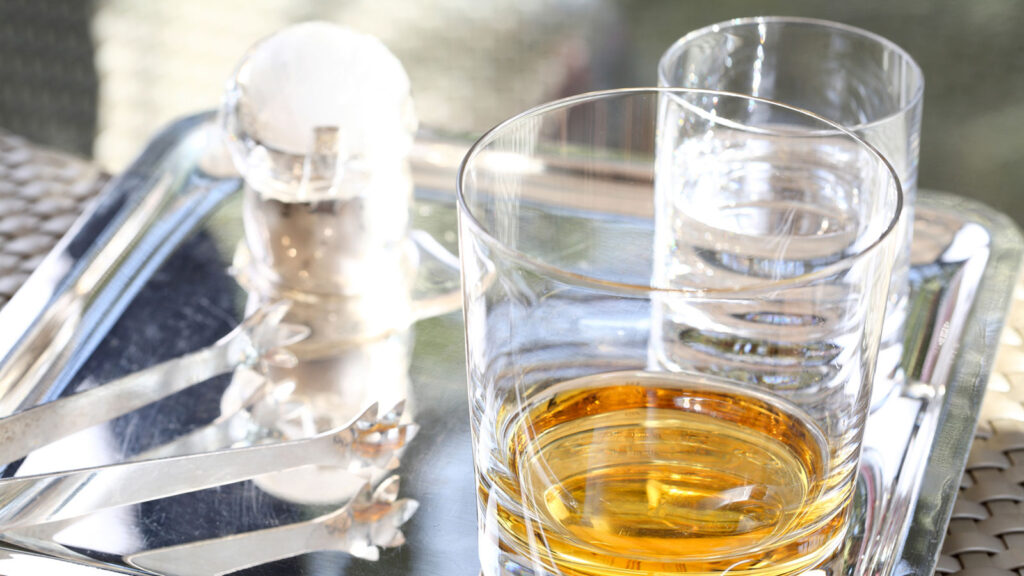
Water and whiskey: the perfect match
You may never have thought of it, but water is a key ingredient in producing great whisky. Even during the tasting phase, it is always better to have a bottle of water with you. Why ? Explanations below!
Water in whiskey production
Water is present in the production of whiskey from the very beginning. The main ingredient, barley, is soaked in large tanks of water to ensure it reaches a moisture content of at least 47%. This activates germination. The malted barley is then immersed again in hot water.
Once the distillation is complete, the colorless and very alcoholic liquid (about 70%) – which will become whiskey after maturation – is diluted in water to lower the alcohol content. Then, the rest will be poured into wooden barrels to further lower the volume of alcohol. However, if the distillate is still too alcoholic, water will be added again to permanently lower the alcohol content to 40%.
It is therefore clear that good water is important for the success of a high quality whisky.

Water in Whiskey Tasting
According to purists, whiskey is drunk smooth, at room temperature and without the addition of soda. The only possible combination? With water !
Some experts even suggest smelling the water to clear your sense of smell before smelling the whiskey. On the other hand, when you go to tasting, the advice is to alternate each sip of whiskey with a sip of water. Otherwise, you can add a few drops of water (4-5 drops) directly to the glass, so as to “release” all the aromatic facets of the whisky.
Water, in fact, releases guaiacol, an organic compound of phenolic nature, from liquid molecules and brings it to the surface. Thanks to this ether, the aromas of tobacco, leather, honey and toasted wood are enhanced.
Thanks to the water, the alcohol content of the distillate is also lowered: this diminishes the flavor of the alcohol on the nose and tongue and emphasizes the most delicate aromas.
Is there water?
Of course not. Ideally, you should use the same water used during production, but this is often not possible.
Be aware that the amount of minerals present changes the taste of the water and, therefore, that of the whiskey. Avoid using carbonated water or water rich in calcium and bicarbonates. Instead, choose water with organoleptic characteristics similar to water used in distilleries or water low in minerals.

And ice cubes?
It is not uncommon to serve a glass of whiskey with ice cubes, but in reality they should be avoided. In fact, the ice cools the distillate by compressing the oils and other compounds, which leads to a loss of aromas and flavors. Also, once melted, the ice makes the whiskey watered down and overly diluted.
If you really want to chill the whiskey, you can put the bottle or glass in the fridge just before drinking it.
